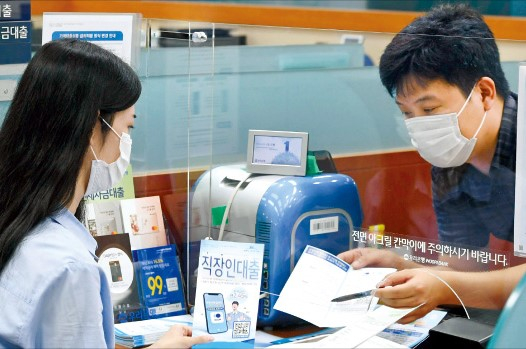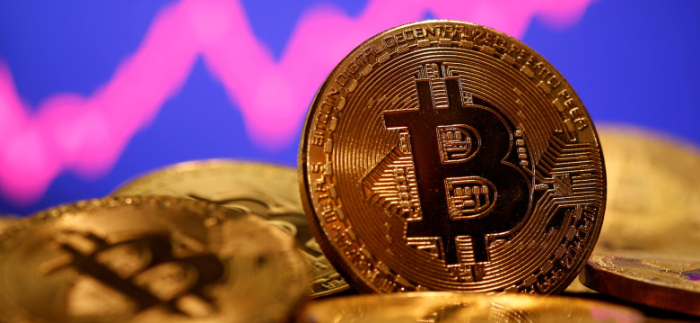Personal debt
A generation indebted: Young Koreans struggle under record loans in Q1
Much of the debt was for housing purchases, but young people also bought cryptocurrencies for quick money
By Jul 06, 2021 (Gmt+09:00)
2
Min read
Most Read
LG Chem to sell water filter business to Glenwood PE for $692 million


Kyobo Life poised to buy Japan’s SBI Group-owned savings bank


KT&G eyes overseas M&A after rejecting activist fund's offer


StockX in merger talks with Naver’s online reseller Kream


Mirae Asset to be named Korea Post’s core real estate fund operator



Young South Koreans are drowning in debt.
Korean youths in their 20s and 30s are reeling under growing personal debt as they aggressively take out personal loans, looking for investment opportunities amid a widening financial gap between themselves and the richer, older generation.
As of the end of March, the country’s young adults had a record 446.5 trillion won ($395 billion) combined loan balance, a 14.1% increase or an additional 55.39 trillion won in borrowing compared to the year-earlier period, according to calculations by The Korea Economic Daily based on recent data from the Bank of Korea.
The debt increase for those in their 20s to 30s was higher than the 9.5% rise for Korea’s entire generation in the same period.
Young Koreans began falling into heavy debt following the outbreak of the COVID-19 pandemic in mid-February last year as the government and the central bank eased lending rules to allow them unprecedented access to credit, resulting in a dramatic increase in debt.

According to the Korea Real Estate Board, young adults in their 20s and 30s accounted for a record 42.1% of all people who bought at least one apartment in January. The ratio rose above the 40% mark for the first time in August last year with 40.4%.
CRYPTOCURRENCIES FOR QUICK MONEY
As the older generation is getting richer with the rise in prices of houses they own amid the pandemic-caused economic slowdown, Korea’s young people have also turned to cryptocurrencies for quick money.
Young people accounted for 63% of 2.49 million new subscribers to Korea’s four cryptocurrency exchanges – Bithumb, UPbit, Korbit and Coinone – in the first quarter.
Analysts say the growing debt obligations by young Koreans will cost them higher interest payments, leading to possible delinquency for many as the Bank of Korea has flagged several times that it would raise its policy rate in the fourth quarter.
The benchmark three-year treasury bond yield was 1.484% last Friday, the highest since Nov. 19, 2019, when it was at 1.485%.

Multiple young debtors, who borrowed from more than three financial institutions, had a combined loan balance of 130 trillion won at the end of 2020, up 16.1% from a year earlier.
Credit card debt by people in their 20s stood at 8 trillion won at the end of last year, up 16.6% from the previous year.
If the central bank begins monetary tightening near the end of this year, an increasing number of young Koreans could fall further into debt, struggling to pay down debt by taking on fresh debt, analysts said.
Write to Ik-Hwan Kim at lovepen@hankyung.com
In-Soo Nam edited this article.
More to Read
-

-
 Monetary policyBank of Korea governor sends stronger signal to raise rates this year
Monetary policyBank of Korea governor sends stronger signal to raise rates this yearJun 11, 2021 (Gmt+09:00)
3 Min read -
 Household debtHeavy household borrowing fans Korea’s asset market overheating
Household debtHeavy household borrowing fans Korea’s asset market overheatingMay 13, 2021 (Gmt+09:00)
3 Min read -
 Crypto arbitrageChinese investors enjoy bitcoin arbitrage gains on Kimchi Premium
Crypto arbitrageChinese investors enjoy bitcoin arbitrage gains on Kimchi PremiumApr 13, 2021 (Gmt+09:00)
3 Min read -

-
 Korean household credit risk nears record-high
Korean household credit risk nears record-highJul 16, 2020 (Gmt+09:00)
3 Min read -
 Record-high Q2 Korean household debt heats up property, stock markets
Record-high Q2 Korean household debt heats up property, stock marketsAug 21, 2020 (Gmt+09:00)
2 Min read
Comment 0
LOG IN


